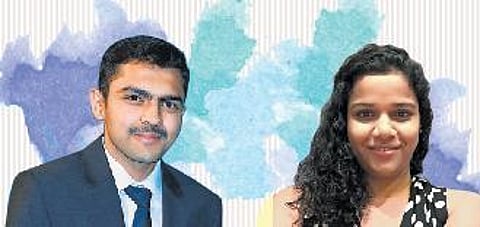

BENGALURU : Think Bengaluru, think traffic. The city has earned itself the notorious tag of being one of the worst Indian cities when it comes to traffic. But while many complain, these young Bengalureans have taken up the task of doing something about the issue. The Mobility Champions programme, hosted by Young Leaders for Active Citizenship (YLAC) in partnership with the #BengaluruMoving campaign, World Resources Institute India (WRI) and Let Me Breathe (LMB), has proposed three solutions aimed at solving Bengaluru’s traffic woes. The programme, which started on July 25, has worked with 12 young residents of the city – to suggest mobility solutions and garner support from policy makers and citizens.
Keeping in mind the number of two-wheelers in the city, the mobility champions have recommended better utilisation for building a first and last mile solution by considering the legalisation of bike taxis. As a first step, the government could set up a Regulatory Sandbox where new mobility service providers like bike taxi operators can pilot their services in a limited geography for a specific time period. This pilot can then be assessed to gauge the potential of these services. Additionally, they suggest the optimisation of BMTC routes and adding new metro feeder buses to provide first and last mile connectivity between IT Parks and metro stations.
Explaining the need for this, Febin Sagir, a mobility champion who also works with the startup Autoninja, said, “Micro-transit services can complement the mass transit (bus, metro, sub-urban rail) network as a means for first-mile and last-mile connectivity and help increase adoption of public transportation.” Jaison Jose, another participant from the programme, said the main objective is to build support for non-motorised transport (NMT) in Bengaluru, since the city, its weather and terrain are all conducive to cycling and walking.
Another point brought up by the participants was on information availability at bus stops or on apps in English as well as Kannada, since Bengaluru is now home to a growing population of non-native speakers. Or as Khushal Wadhawan, another participant, explains, “To retain and increase the mode share of public transport, it is essential that the users are provided with real-time, accurate and reliable information on public transport operations. This will help public transport develop as a real alternative to private transport and would ultimately lead to less vehicular density and congestion on Bengaluru’s streets.”